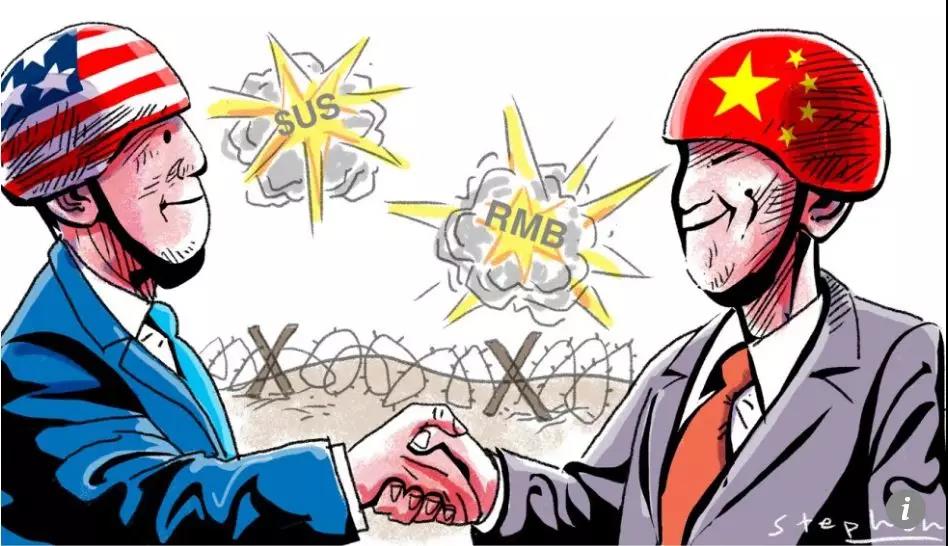
By Edward Tse | February 7th, 2018
China-US trade and investment is thriving inpockets on the ground, despite the policy frictions
Edward Tse says while concerns about unfair Chinese trade practices and Chinese companies’ ties with the government are not totally unfounded, they ignore the real and growing business collaboration as the private sector takes the lead
Two recent failed deals involving Chinese companies seeking to invest in the US have made headlines. US telecoms company AT&T walked away from a deal with Huawei, a Chinese telecom equipment and smart device maker, under pressure from US Congress. The US government also rejected the intended acquisition of MoneyGram, a US money transfer company, by Ant Financial, an affiliate of China’s internet giant, Alibaba.
It was reported that both deals triggered US “national security” concerns. The media are now saying that, on Capitol Hill, there is a prevailing wind of “trust deficit” in US-China relations on trade and investments.
There seems to be two parts to this story. The first concerns Chinese companies investing in the US. The theory goes like this. The Chinese government is behind everything that Chinese businesses are doing and state-owned enterprises, because of their government ownership, will act on behalf of the Chinese government’s interests. By implication, their motives are not trustworthy. In addition, the Chinese government employs strong industrial policies that create an unfair playing field for companies and countries.
The second part of the story is about the perception of how US companies are treated in China. The key thesis here is that the Chinese market is closed to US (and for that matter all foreign) companies. The Chinese government favours local enterprises, especially state-owned companies, and so US companies cannot be successful in China. Many US politicians and lobbyists are asking for “reciprocity”.
There are some elements of truth in both of these arguments. However, they do not present the complete picture.
While the state sector is certainly prevalent in China, the non-state sector is actually becoming more powerful in its own right. According to Chinese government statistics, the non-state industrial sector’s revenue in 2016 was close to four times that of the state sector. About the same ratio also applies to the total profit.

Source: Baidu.com
Based on a study by the Institute of Population and Labour Economics at the Chinese Academy of Social Sciences, China’s “new economy” – internet-based businesses including e-commerce and car-hailing services – grew twice as quickly as China’s overall gross domestic product in the 10 years to 2016. By definition, these new-economy companies are mostly, if not entirely, private-sector companies. Entrepreneurship and business innovation are thriving in China and they come mostly from the private sector.
US President Donald Trump has called for the “re-shoring” of manufacturing to the US. Ironically, some Chinese companies were among the first to respond to the call.
Companies such as Fuyao Glass, Foxconn and Great Wall Motors – all non-state owned – announced plans to invest in the US. (Foxconn is, of course a Taiwanese company but its operations are mainly on the Chinese mainland). And Jack Ma, Alibaba’s chairman, pledged to create “one million jobs” in the US. Alibaba is the owner of the South China Morning Post.
Since its economic reform that started some four decades ago, China has gradually opened its sectors to foreign participation. Today, while there are still some that are closed or largely closed to foreign companies, a much larger number are open to competition, for example in consumer products and retail.
For US companies such as Nike, Starbucks, Apple, Ford and General Motors, China is one of their largest markets, if not the largest, in the world. And, China’s importance to these companies continues to rise. The “golden era” of foreign companies, at least for these successful ones in China, is certainly not over.
Many pundits have suggested that China’s “Great Firewall” has blocked all US tech companies from doing business in China. The likes of Facebook and Twitter are indeed blocked in China, and others like Google chose to withdraw as a stand against China’s censorship requirements. (It’s worth noting, however, that Google recently announced the establishment of a major artificial intelligence centre in Beijing.) However, there are many other tech companies that are not blocked. LinkedIn, Airbnb and Amazon’s e-commerce are all operating in China. Uber and eBay were allowed but they decided to divest largely due to extremely strong local competition (from the non-state sector).

Source: Baidu.com
At the 19th national congress of China’s Communist Party last October, President Xi Jinping made the pledge that China will continue to open up its economy to foreign companies. In November, the government announced plans to ease limits on foreign ownership in a range of financial services. Further liberalisation is expected over time.
Similar to how US companies are investing in China to try to capture the Chinese market, more Chinese companies are also investing in the US. Triangle, the third-largest Chinese tyre manufacturer, is investing in a US$580 million plant in North Carolina. To many Chinese companies, the US is an attractive market and the conditions for manufacturing are becoming more favourable.
As Chinese innovation and entrepreneurship continue to thrive, there will certainly be more opportunities for start-ups involving both Chinese and US entrepreneurs, and venture capitalists. Technology, especially AI, will increasingly be embraced for innovation.
Both the US and China are now leading the world in the development and application of AI, and this trend is likely to continue to accelerate. The interactions between China and the US at the start-up and investors’ levels are actually taking place intensively as there is so much to share and many opportunities to jointly pursue. Much of this is reflected in cross-border investment.
It would be naive to expect smooth sailing for the US-China trade and investment relationship this year. However, I don’t believe all will be bad, either. There will be areas of tension and differences in points of view and policies, but there will also be areas of collaboration and alignment.
“Coopetition” is perhaps the best word to describe the nature of this relationship. It won’t be a zero-sum game, especially not in today’s world of increasing connectivity.
Edward Tse is founder and CEO of Gao Feng Advisory Company, a global strategy and management consulting firm with roots in Greater China. He is the author of China’s Disruptors.

